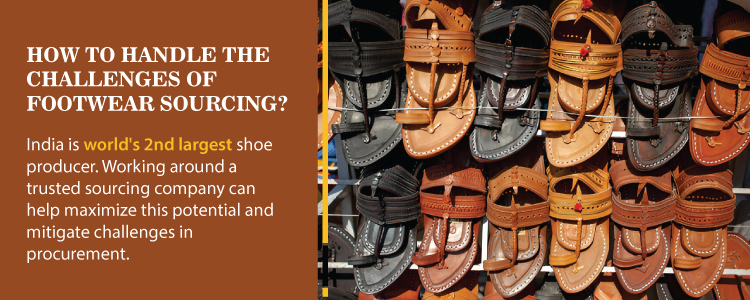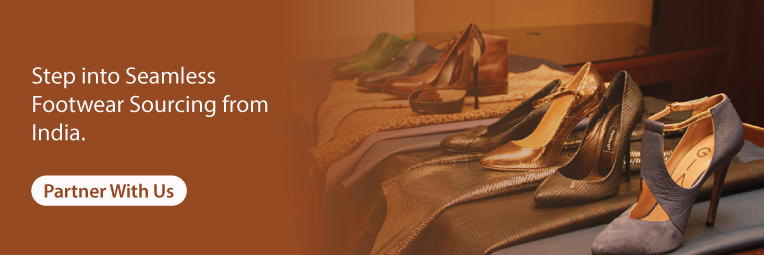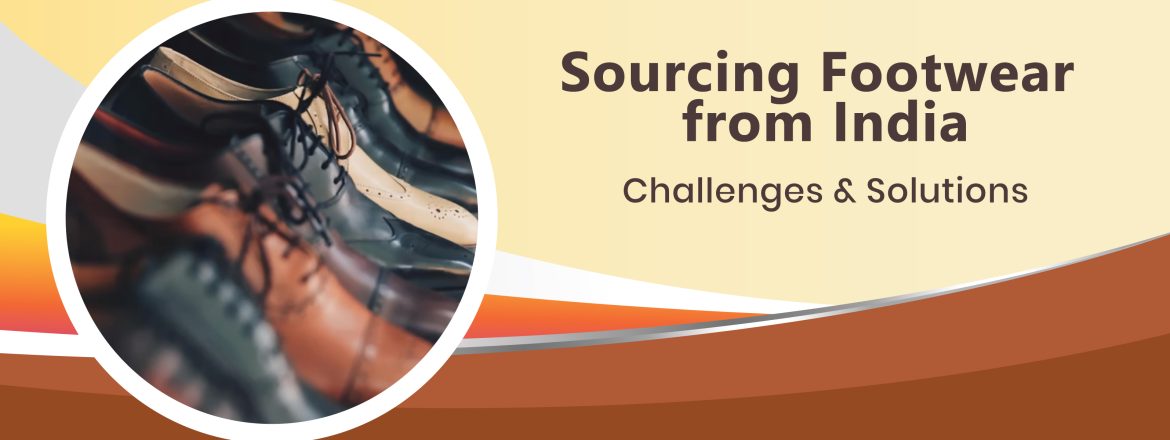Top Challenges When Sourcing Footwear from India
Introduction
However, like all sourcing destinations, India comes with its set of challenges in terms of exports. This includes supply chain management disruptions, quality check issues and complexities in navigating the evolving market dynamics. The good news here is that plenty of adaptive strategies are in place that can be adapted by firms proactively to counter them.
Let us learn the bottlenecks and understand them in detail to be able to strategize and make informed choices when sourcing from the 2nd largest footwear market in the world – India.

Supply Chain Management
Moreover, the multiple stages of this process design and production usually require strong coordination and communication. This indeed becomes complex due to several reasons such as poor infrastructure, delayed deliveries, and low quality standards among the wholesale footwear suppliers. The footwear manufacturer thus has to analyze and mitigate such logistical problems and ensure the cost-efficient delivery of the product to the customer on time.
Compliance and Regulations
Inventory Management

Competitive Market Dynamics
Inductus Global: The Solution to Footwear Sourcing Challenges
Inductus Global, a leading sourcing and procurement company in India, can be the ultimate solution-provider for the above challenges. The group of seasoned professionals here know the dynamics of the USA, UK, UAE, and African markets and can navigate the complex waters of global trade. We help with identifying, sourcing, and delivering the finished products along with providing services like design and development, business negotiations, mass management, packaging management, logistics management, shipping arrangement, and rigid quality checks.
Altogether, our customer-centric approach and transparency set us apart from competitors and help businesses ensure a sustainable and value-driven growth.
Conclusion
There do exist many opportunities to work around challenges regarding questions of supply chain management, regulatory compliance, inventory control, and market competition in the Indian footwear sector. The presiding solution, therefore, seems to be a product sourcing company like the one mentioned above. The best companies, like Inductus Global, advise on raw material sourcing and look into supply chain and vendor relationship management, simplifying footwear manufacturers’ operations and alleviating their logistical inconveniences. Furthermore, they lend aid in navigating regulatory requirements by making sure that manufacturers meet quality standards, become labor law compliant, and become environmentally friendly. Altogether, this ensures flawless procurement for global entities without having to worry about the product sourcing lifecycle.

From the inventory management perspective, procurement companies are organizations that help businesses with improved accuracy in demand forecasting, improved levels of inventory, and better distribution networks. With an extensive understanding of market trends and supplier capabilities, a procurement firm can keep brands in the business of footwear highly competitive as it ensures that they procure their materials at the highest quality while minimizing unit costs.
By partnering with an experienced procurement firm, businesses in the footwear industry can eliminate operational challenges and work more efficiently to allow time for creating innovations to stay competitive in the global landscape.








